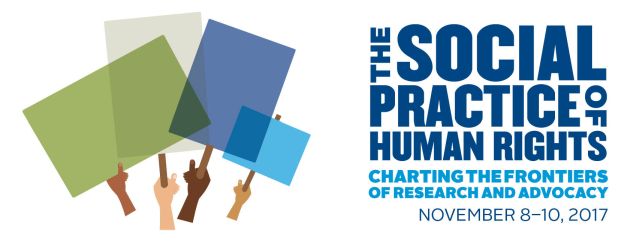
Start Date
11-9-2017 10:30 AM
Abstract
This paper identifies the shortfalls of United States policy regarding migrant agricultural workers and proposes several courses of action for the federal government. Analysis of current U.S. policy and practices reveals serious human rights violations toward migrant agricultural workers by various U.S. entities, including the U.S. Department of Homeland Security, the U.S. Department of Labor, and the state of Arizona. Human rights violated include freedom from discrimination, equality before the law, the right to marriage and a family, the right to work, and the right to adequate living standards, including food, shelter, and health. These breaches find ground in both the international arena through international treaties and in the domestic sphere through the U.S. Constitution and other established laws.
In order to overcome these problems, the best course of action would be to promote ratification of international treaties regarding the rights of relevant vulnerable groups, including the Convention on the Protection of the Rights of All Migrant Workers and Members of Their Families. This would set the foundation for future U.S. policy-making standards regarding migrant workers. In addition, the federal government should focus on amending current policies based on the recommendations of the U.N. Special Rapporteur on the Rights of Migrants and the Working Group in the Universal Periodic Review.
Leveling the Fields for Migrant Farmworkers: Developing Human Rights Public Policies Using Human Rights-Based Approach
This paper identifies the shortfalls of United States policy regarding migrant agricultural workers and proposes several courses of action for the federal government. Analysis of current U.S. policy and practices reveals serious human rights violations toward migrant agricultural workers by various U.S. entities, including the U.S. Department of Homeland Security, the U.S. Department of Labor, and the state of Arizona. Human rights violated include freedom from discrimination, equality before the law, the right to marriage and a family, the right to work, and the right to adequate living standards, including food, shelter, and health. These breaches find ground in both the international arena through international treaties and in the domestic sphere through the U.S. Constitution and other established laws.
In order to overcome these problems, the best course of action would be to promote ratification of international treaties regarding the rights of relevant vulnerable groups, including the Convention on the Protection of the Rights of All Migrant Workers and Members of Their Families. This would set the foundation for future U.S. policy-making standards regarding migrant workers. In addition, the federal government should focus on amending current policies based on the recommendations of the U.N. Special Rapporteur on the Rights of Migrants and the Working Group in the Universal Periodic Review.


